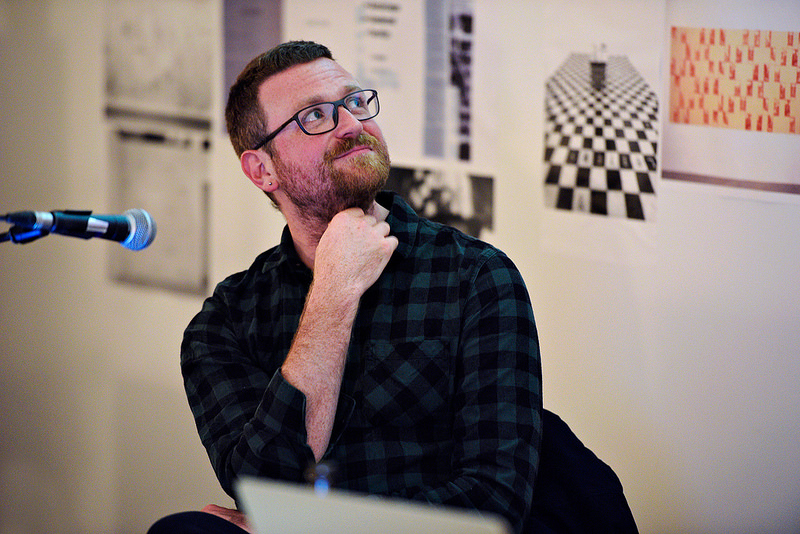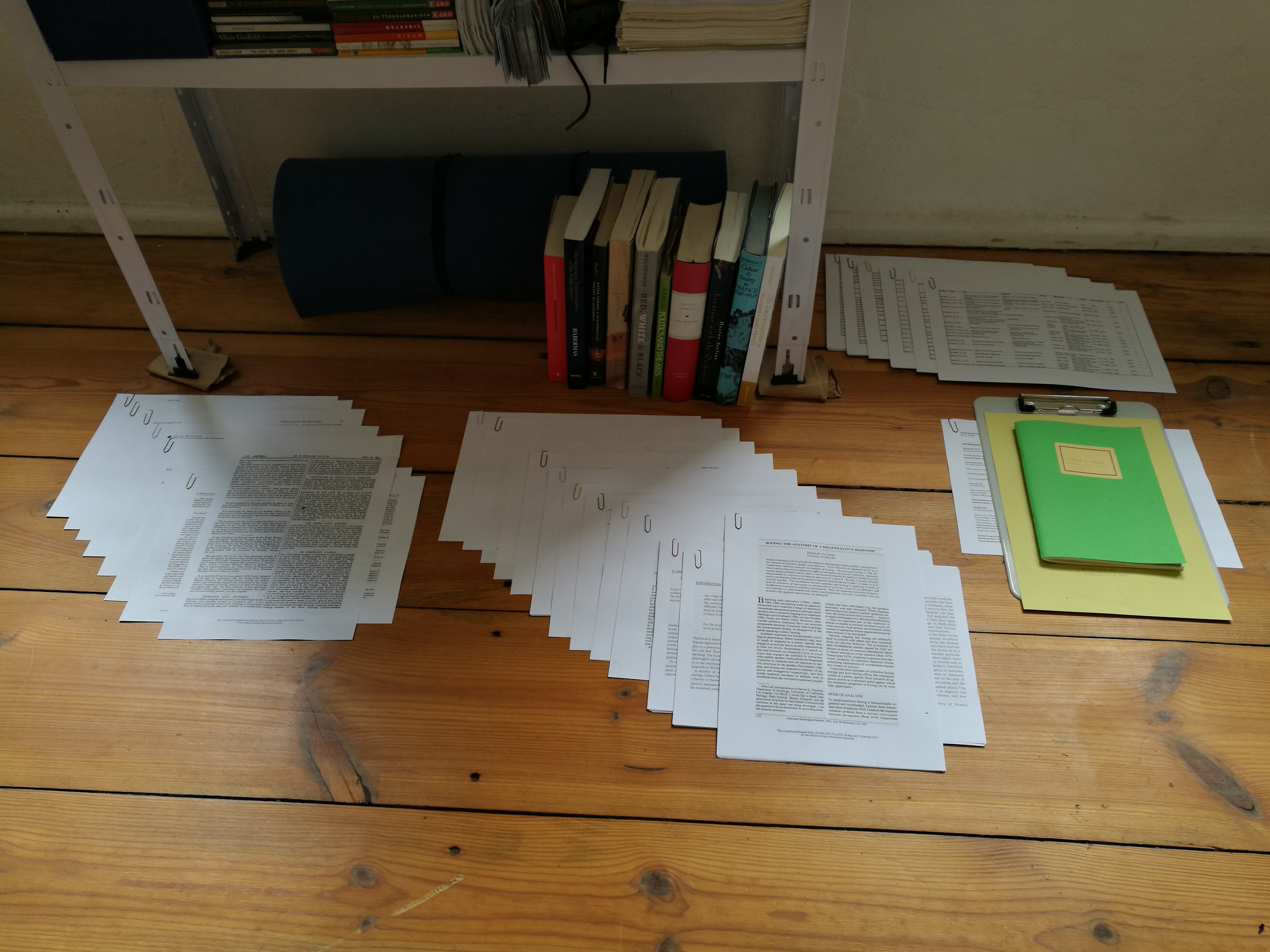
The series “thinking about / working on” features projects and processes of students, teaching staff and guests of exMedia, asking them to share thoughts on their current topics and give insight into their practice. The questions vary slightly each time and can be adapted by the interviewee. First in the series is Bill Dietz, professor for Sound in exMedia (2016 – 2017).
* What is the current focus of your work? What themes or subjects are you currently addressing in your work?
Reception remains central. For a long time I imagined my work as a set of tools for reorienting listeners in relation to whatever they listen to. That is, I would give you back what you typically like hearing, but via some experimental sonic, performative process (more about that here). Lately, though, I’m more interested in something like the inverse – how music “as such” already reorients us and the sonic itself in its hypercomplex affective, emotional, mnemonic internalizations.

* What kind of materials are important to you right now and how is this expressed in your work?
I’m listening a lot to the micro-rhythms and timbres of protest. To the specific asynchronicities of individual student voices in the choral reading against Charles Murray at Middlebury College on March 2nd, 2017. To the intervals between call and response in the voices of the activists that closed Stansted Airport to prevent deportations on March 28th, 2017.
I’m spending a lot of time transcribing these rhythms, and then trying them out elsewhere. Chopping vegetables in the rhythm of a particular usage of the human microphone, letting that specific rhythm penetrate and intervene in my everyday. Some of this material will be the basis for my piece, L’école de la claque, happening this fall at the Donaueschinger Musiktage (which is also the bibliographic twin of my current seminar at the KHM).
* Do you have an idol or is there an art form that you totally adore?
I’ve had a few things on loop – Syd’s “Body” (Fin, 2017), TLC’s “No Scrubs” (FanMail, 1999). Both are part of a playlist bound to a particular experience of intimacy. Calling on that state in listening, its after-sound, as I move through and between cities profoundly reorients me. At the same time, I watch others listening, in the train, on the street, doing pretty much the same thing with whatever they’re listening to – being elsewhere. I imagine our mutual but not shared rejection of a world.
images: portrait of Bill Dietz, copyright Pieter Kers,
working space, copyright Bill Dietz